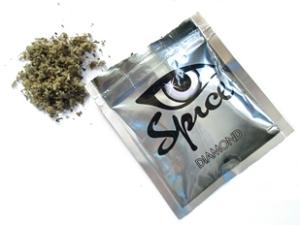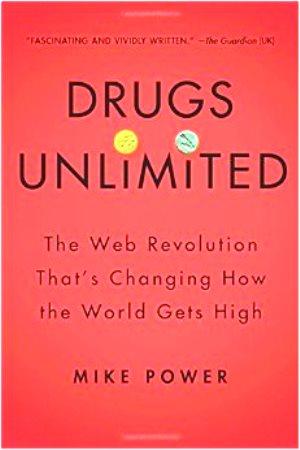With "Drugs Unlimited," British journalist takes us a provocative and eye-opening tour of the world of the new synthetic drugs and the role of the Internet in making it all possible.
The Kettle Falls Five case gets postponed, ASA starts a petition to protect California patients who need organ transplants, Minnesota begins implementing its new medical marijuana law, and more.
A Houston cop gets caught transferring cocaine, a New York narc gets nailed for tipping off his neighborhood buddies about looming drug raids, and another prison guard goes down for contraband.
California's Prop 47 sentencing reform is kicking in with a vengeance, it's Green Friday in legal marijuana states, and there's a whole raft of international news.
Oregon's dispensary law continues to be thrashed out in the courts, a Pennsylvania 911 Good Samaritan and naloxone access law has gone into effect, Minnesota gets medical marijuana growers, there's a Texas bill targeting synthetic cannabinoids, and more.
A new report suggests how to win marijuana legalization initiatives in 2016, a closely watched medical marijuana trial is delayed, there's naloxone and overdose death news, Mexican pot farmers are getting squeezed from competition north of the border, and more.
Houston's police chief criticizes pot prohibition, marijuana reform will be before the Texas legislature, a Massachusetts activist pushes boundaries, LA's DA sues to block a medical marijuana delivery app, a Tennessee DA vows to end civil asset forfeiture, and more.
Drugs Unlimited: The Web Revolution That's Changing How the World Gets High by Mike Power (2014, Thomas Dunne Books, 316 pp., $25.99 HB)
Thanks, Mr. Power, for making me feel like an old fogey. My personal psychedelic career ended sometime back in the last century. I wouldn't know N-Bomb (
25C-NBOMe) from
Europa (
2C-E), and I wouldn't know
MDPV (Ivory Wave) if it came up and bit my face off (which, lurid press reports notwithstanding, it won't).
Fogey that I may be, I was in Austin, Texas, in the mid-1980s and remember quite clearly the arrival of Ecstasy (MDMA) on the scene, first in the gay clubs, then spreading into the student party scene. Just as Ecstasy was a substitute for amphetamines, and amphetamines were a substitute for cocaine, many of these new synthetics appear aimed at getting a niche in that perpetual psychedelic-tinged stimulant club drug circle currently dominated by Ecstasy.
Thousands danced the Texas night away on Ecstasy for a few halcyon months in the 1980s before the feds realized that the drug had escaped into the mainstream and criminalized it. They could ban the drug, but they couldn't ban the rave/club culture that both nurtured and evolved from it. Instead, that culture has gone worldwide. Now, whether you're in Joliet, Illinois or Jakarta, Indonesia, you can go and dance the night away to thumping beats under the influence of a drug (almost) nobody ever heard of a decade ago -- and, thanks to the wonders of the Internet age, you can have it delivered to your door with little threat of problems with the police.
In Drugs Unlimited, British journalist Mike Power provides an authoritative, well-researched, and engagingly written account of the rise of these new drugs and the inextricably interwoven links between the new drugs and the rise of the Internet. Along the way we drop in on the godfather of the new drugs, Sasha Shulgin, visit the Chinese chemical factories where many of them are produced, revisit the first economic transaction made on the Internet (a drug deal), and investigate the Dark Web drug marketing scene made famous by sites like Silk Road.
Drugs Unlimited is actually the American edition of Drugs 2.0, which was published more than a year ago in Great Britain. I mention this only because that will explain why it doesn't have the absolute latest information on the newest new drugs, or why it seems like Power was unaware that Silk Road had been busted. (He does add a new chapter at the end of the American edition to examine the Silk Road bust.)
Power traces -- pretty accurately, I think -- the rise of the new synthetics back to Dr. Shulgin and his astounding work of synthesizing hundreds, if not thousands, of compounds of the phenethylamine and tryptaminegroups. That work was made publicly available in the books PIKHAL (Phenethylamines I Have Known and Loved) and TIKHAL (Tryptamines I Have Known and Loved), and people have been synthesizing and experimenting with the results ever since.
Some of those same psychonauts were also involved in the genesis of electronic information technologies, holding dear to the principles of individual autonomy, intellectual freedom, and disdain for an overweening state in both cases. Power is very good at tracing that tangled evolution.
And now, we are in a spot where we can open our TOR browsers, find our way to any of the dozens or hundreds of online drug supermarkets, and buy whatever drug we want -- including not just those new-fangled ones, but old favorites like cocaine, LSD, heroin, and weed -- using encrypted communications and crypto-currencies like Bitcoin, and have them delivered to our doors in nice packages.
The genie is out of the bottle and, as Power shows, no one is going to get it back in. Governments are hopelessly ham-handed, reactive, and behind the game. They don't even know about these new drugs until thousands of people have tried them, and then they move to ban a new drug or a class of them, and some chemist tweaks a molecule or two, and then there's a whole other set of drugs to ban. They bring down places like Silk Road, but up pops Silk Road 2.0, or the Agora Marketplace, or Evolution or any number of heavily-protected competitors.
And some young people die using them, and we have another drug panic. Just this week, for instance, CNN is running a special, "Deadly High: How Synthetic Drugs Are Killing Kids," and the British media seems to trumpet every Ecstasy death it comes across (too often without considering the tens or hundreds of thousands of people who took Ecstasy at the same time without dying).
These drugs can kill, but they rarely do, and the media spotlight on each death distorts reality. It's difficult to know how prevalent use of these drugs is, but the number of deaths that can be fairly attributed to them is in the single- or double-digits each year. Compare that to the 21,000 or so opiate overdose deaths reported in 2012, and you see what I mean.
Anything can be a "killer substance" if you take too much of it, even water. And that's what appears to be behind the deaths and other adverse consequences associated with these drugs. People died because they didn't know what they were taking. They may be used to a drug whose active dose is measured in milligrams, but now have a substitute drug whose active dose is measured in micrograms. Take a hundred times the recommended dose of anything and see what happens.
That has happened. And so have labeling mistakes at Chinese factories with poor or non-existent quality controls. And so has the criminally stupid packaging of very strong new synthetics cut with substances that feel superficially like cocaine. Users get the cocaine taste and the cocaine numbness and make cocaine-sized lines to snort, and ingest way too much of the drug. And die.
These problems, tragic as they can be, are largely functions of drug prohibition -- not the drugs themselves. Anything is less dangerous when you know what it is, what it is supposed to do, and how much you can safely take. But criminalized substances are unlikely to be quality-controlled. The problem is different, but related, with new synthetics that are not yet criminalized. In these cases, manufacturers and vendors strive not to identify what the substance is or what its effects are in hopes of coming in under the radar of regulators. That's why we have new synthetics marketed as "plant fertilizer" or "bath salts." Those can get through Customs when something marked "New amphetamine-type psychedelic, recommended dose 100 micrograms" can't.
It almost goes without saying that neither Power nor the people involved in or studying this phenomenon have use for dealing with it through prohibition and criminalization. But that doesn't mean that laissez faire rules.
"We are currently unprepared legislatively, socioculturally, and practically for this, the next phase in the drug market," he writes. "Legalization is not the answer, banning drugs is not the answer, leaving things as they are -- in complete unregulated anarchy in both the old and the new drug markets -- is not the answer… There must be a concerted effort not only of harm reduction, but of urgent damage limitation… The explicit and implicit message from drug users themselves is that no law will ever change nor has ever changed their desire to get high."
Ultimately, the lesson of the new synthetics and the increasingly easy access to them is one of responsibility, both personal and collective. Drug users have the responsibility to be smart, educated consumers, and they can do that. The answers are out there, and these days, they're just a click or two away. And we as a society have a responsibility to understand that people are going to take drugs regardless of whether we want them to or not, and to find ways to minimize -- not increase -- the harm.
Drugs Unlimited is a guided tour through this new world of new drugs and new ways to get at them. And it's provocative, unsettling, and eye-opening along the way. Highly recommended.
back to top
The Kettle Falls Five case gets postponed, ASA starts a petition to protect California patients who need organ transplants, Minnesota begins implementing its new medical marijuana law, and more. Let's get to it:
NationalOn Tuesday, the head of the Epilepsy Foundation said he wants CBC cannabis oil available nationwide. Warren Lammert, chairman of the board of the Epilepsy Foundation, and father of an epileptic child, has said he wants CBD cannabis oil used to treat seizures made available nationwide. The Epilepsy Foundation has determined that "an end to seizures should not be determined by one's zip code," and that more research is essential.
California
On Monday, ASA announced a petition drive seeking support for a California Medical Marijuana Organ Transplant Act. The medical marijuana defense and advocacy group Americans for Safe Accessis leading a petition drive to garner support for state legislation to patients who are being denied access to organ transplants because of their medical marijuana use. The proposed legislation is the Medical Marijuana Organ Transplant. It would bar the denial of organ transplants because of medical marijuana use. Click on the title link for more information and to sign the petition.
On Tuesday, Los Angeles announced it had shut down more than 400 dispensaries.The office of City Attorney Mike Feuer says it has shut down 402 dispensaries since Feuer took office in the summer of 2013. The office has also filed more than 200 criminal cases related to dispensaries, with 743 defendants. It is unclear what the actual impact is, however; new dispensaries seem to pop up at the rate of one a day.
Also on Tuesday, the LA city attorney sued to block a medical marijuana delivery app. The LA city attorney's office filed a lawsuit to close down a mobile phone app that sets up home deliveries of medical marijuana. The lawsuit alleges that Nestdrop is a "flagrant attempt" to get around restrictions imposed by voters last year. The city argues that its medical marijuana ordinance only allows patients or caregivers to pick up the medicines themselves and does not allow delivery services. Nestdrop isn't the only the only app offering deliveries in Southern California, but it's the first to be targeted by authorities.
Colorado
Last Thursday, an Arizona professor fired for medical marijuana research got new funding to continue her work. Researcher Dr. Sue Sisley, who was fired from her job at the University of Arizona over her medical marijuana research, has been awarded a $2 million grant from the state of Colorado to continue her research into the effects of medical marijuana on veterans with PTSD.
Massachusetts
On Tuesday, a Massachusetts activist went public with his boundary-pushing Allston CBD shop. Veteran Bay State marijuana reform activist Bill Downing has opened a shop called CBD Please in Allston. He claims that his operation is legal because the products he offers are made from high-CBD, low-THC cannabis oils. And he's not too concerned about any reaction from authorities. "The state can do anything they want. They can throw me in jail. They can do whatever they want," said Downing. "But I know I'm doing the right thing and I'm doing it for the right reasons. I'm doing it for the patients here in the state and I really don't care about the bureaucracies trying to stop me because they're immoral. And because the public does not support them." When asked if what he was doing was legal, Downing replied: "I don't know, and I don't care."
Minnesota
On Monday, the state named two medical marijuana growers. The state Department of Health today named two groups that it has selected to grow marijuana under the state's new law. LeafLine Labs and Minnesota Medical Solutions ("MinnMed") will be allowed to grow, process, and distribute medical marijuana products. Medical marijuana is supposed to be available for patients by next July.
Oregon
Late last month, the state decided to appeal a lower court ruling that cities can ban dispensaries. The state earlier this month filed an appeal of a circuit court ruling that the city of Cave Junction can deny a business license to a medical marijuana dispensary. Josephine County Circuit Court Judge Pat Wolke ruled that the state's dispensary law, enacted last year, did not block the ban, but didn't rule on state constitutional issues involved. The city has also appealed the ruling.
Washington
On Monday, trial in the Kettle Falls Five federal medical marijuana case was postoned.A new judge assigned to hear the widely watched federal medical marijuana case of the Kettle Falls Five has continued the federal trial scheduled to begin Monday in Spokane, Washington. Senior Judge Fred Van Sickle has been replaced by Judge Thomas O. Rice, who set a new trial date of February 23. This comes as the US Senate plans to consider a measure later this week that would prohibit Department of Justice funds from being spent on medical marijuana enforcement in states where it's legal. Advocates say that federal prosecutions like the Kettle Falls Five, as well as pending asset forfeiture cases in California, would be impacted by the passage of such a measure. The change in trial date also came soon after CNN ran the latest national media piece on the Kettle Falls Five, discussing the contradictions between Washington's adult-use and medical marijuana laws and the prosecution of state compliant patients like the Kettle Falls Five.
[For extensive information about the medical marijuana debate, presented in a neutral format, visit MedicalMarijuana.ProCon.org.]
back to top
A Houston cop gets caught transferring cocaine, a New York narc gets nailed for tipping off his neighborhood buddies about looming drug raids, and another prison guard goes down for contraband. Let's get to it:
In Houston,
a Houston police officer was indicted November 20 for transporting cocaine. Officer Jasmine Renee Bonner, 26, had been arrested in August after a "lengthy ongoing investigation" led by DEA and ATF officers when she was observed removing cocaine from the trunk of her car and giving it to a coconspirator. Both were then pulled over separately in traffic stops. She is charged with first-degree felony possession of a controlled substance with intent to deliver, and is being held in the Montgomery County Jail on a one million dollar bond.
In Troy, New York, a Troy police officer was indicted last Friday on charges he tipped off a friend about an impending drug raid. Patrolman Brian Gross had been arrested in July, and the arrest and the indictment were part of a five-month investigation by the attorney general's office and the State Police. Gross was assigned to the Community Narcotics Enforcement Team, "and thus had knowledge of and access to investigative intelligence, suspect information and details concerning the timing and location of search warrants," according to an attorney general's office. The investigation started after police raids aimed at known drug houses turned up no activity. The houses were all in Gross's neighborhood. He was indicted for tampering with physical evidence, a felony, and misdemeanor counts of divulging an eavesdropping warrant, two counts of official misconduct and a count of obstructing governmental administration.
In Orlando, Florida, a former prison guard was sentenced last Monday to 18 months in prison for smuggling marijuana and tobacco into the Coleman Federal Correctional Complex near Leesburg. Jason Epstein, 29, copped to receiving hundreds of dollars in payments in return for smuggling in goodies "at least three or four times." He had pleaded guilty to one count of bribery.
back to top
California's Prop 47 sentencing reform is kicking in with a vengeance, it's Green Friday in legal pot states, and there's a whole raft of international news. Let's get to it:

Mexican President Pena Nieto finds himself in a tight spot as anger over corruption and impunity reach the boiling point.
In Legal Marijuana States, Black Friday is Green Friday. Legal marijuana retailers in Colorado and Washington are getting in the holiday spirit by offering "Green Friday" specials to customers. Kindman Premium Cannabis in Denver is offering $50 ounces to the first 16 Colorado residents today and tomorrow, while the Green Room in Boulder has their $50 eighths on sale for $40. Some Washington state retailers are offering similar deals.
With Threat of Initiative Looming, Some Key Massachusetts Lawmakers Start Talking Legalization. Some Bay State lawmakers are saying it's time to pass a bill to tax and regulate marijuana, or else the voters are going to do it themselves. "It's almost certain to be on the ballot in 2016, I think people are going to vote for it, and I think we have the responsibility to do it right," said state Sen. Will Brownsberger, chairman of the legislature's judiciary committee. "I don't think it's wisest to leave it to whoever is writing the ballot question." Not everyone agrees, including Committee on Public Health Chair Rep. Jeffrey Sanchez and Republican Governor-elect Charlie Baker. But if the legislature doesn't act, an initiative looks very likely in 2016.
Medical Marijuana
Arizona University Professor Fired for Medical Marijuana Research Gets Colorado Grant to Study Pot and PTSD. Researcher Dr. Sue Sisley, who was fired from her job at the University of Arizona over her medical marijuana research, has been awarded a $2 million grant from the state of Colorado to continue her research into the effects of medical marijuana on veterans with PTSD.
Sentencing
California Drug Offenders Being Freed Under Prop 47. Hundreds of jail and prison inmates have already been released in the three weeks since California voters approved Proposition 47, which retroactively reduced drug possession (and some other minor offenses) from a felony to a misdemeanor. Scores more people are flooding courts with applications to have their records cleansed of felonies. Nearly 5,000 people in state prison and tens of thousands more in county jails and on probation are probably eligible for resentencing. Those who completed their sentences years ago also can have their felonies erased. Also, thousands of probationers will be released from regular monitoring. Foes expect the worst, but time will tell.
International
Mexican President Announces National Anti-Crime Plan. Under intense political pressure after the apparent kidnapping and murder of 43 radical teachers' college students in Guerrero in September in a collaboration between corrupt politicians, corrupt police, and drug gangsters, President Enrique Pena Nieto Thursday announced a plan designed to cool public outrage and reform the nation's notoriously corrupt police forces. Pena Nieto is proposing giving Congress the power to dissolve corrupt municipal police and also placing local police under the control of the nation's 31 state governments. The same day Pena Nieto made the announcement, police in Guerrero announced the discovery of 11 burned and decapitated bodies (not the missing students). Similar anti-crime plans aimed at corrupt local police were announced in 2004 and 2008, but didn't succeed in rooting out the problem.
Colombia President Announces Crop Substitution Pilot Program, Says Will End Need for Aerial Fumigation of Coca Crops. President Juan Manuel Santos announced Tuesday a pilot program for crop substitution in southern Putumayo state and said there will be "no more need" for aerial fumigation of crops once it is implemented. The pilot program is set to start in April. Crop substitution is a key part of the interim agreement on drugs between Colombia and the leftist guerrillas of the FARC. The two forces have been in extended peace negotiations for the past two years.
Uruguay Delays Marijuana Pharmacy Sales. Although the Uruguayan government had initially planned to start allowing the sale of marijuana in pharmacies by year's end, it has now pushed that goal back to March, and perhaps further. National Drugs Board General Secretary Julio Calzada told reporters Wednesday that the delay loomed. The Reuters report linked to here mentioned "a variety of hurdles," but didn't specify what they are. Under Uruguay's legalization, people can grow up to six plants at home, organize into collectives to grow jointly, or register with the government and buy their pot at the drug store -- once the government crosses those hurdles.
Malay Man Gets Death Sentence for 20 Pounds of Weed. The Malaysian High Court in Alor Setar has sentenced a 37-year-old Penang man to death for trafficking 9.4 kilos of marijuana. Akbar Ali Abdul Rahman was convicted under the Dangerous Drugs Act 1952, which imposes a mandatory death sentence for some drug offenses.
North Korea as China's Meth Supplier. The Guardian has in-depth reportage on North Korea's methamphetamine industry, which it says is flooding northwest China with the drug. The report says the Hermit Kingdom's meth industry has shifted from centralized and government-controlled production to decentralized, privatized production. North Korea denies it's doing any such thing. A very informative read.
Australia Report Finds Drug Enforcement Doesn't Affect Drugs on the Street. The New South Wales Bureau of Crime Statistics and Research has released "the most comprehensive assessment of drug law enforcement ever undertaken in Australia," and found no evidence that increased drug law enforcement -- as measured through seizures and arrests of drug dealers -- affected the amount of drugs on the street or reduced hospital admissions related to hard drugs. The report is "Supply Side Reduction Policy and Drug-Related Harm."
Medical Marijuana Bill Filed in Australia's Tasmania. A bill to allow for medical marijuana and set up a controlled farming regime was filed Thursday in the Tasmania state parliament. Local media says the bill has "broad support," and was cosponsored by a Liberal, a Liberal Democrat, and a Green. The bill is not yet available on the Tasmania parliament web site.
back to top
Oregon's dispensary law continues to be thrashed out in the courts, a Pennsylvania 911 Good Samaritan and naloxone access law has gone into effect, Minnesota gets medical marijuana growers, there's a Texas bill targeting synthetic cannabinoids, and more. Let's get to it:

"Spice" and other synthetic cannabinoids are under the gun in Texas. (wikipedia.org)
APA Call for Papers on Marijuana Legalization. The American Psychological Association's (APA) journal, Psychology of Addictive Behaviors, is seeking empirical (research, both original and meta-analyses) and theoretical (review) papers examining trends in marijuana use and use disorders and clinically-related research on the drug's addictive potential and health effects. The APA notes that policy is shifting "toward medicalization and legalization of marijuana" and says that "research on the potential effects of this drug is critical as the public health significance of marijuana is debated in this country." Click on the link for submission requirements and deadlines.
Alaska Marijuana Business Group Angling for Industry-Friendly Rules. A small number of people interested in getting into the marijuana business in Alaska have formed the Coalition for Responsible Cannabis Legislation to advocate for regulations and rules that will "let the market decided who makes it or who fails," said the Coalition's Bruce Shulte. The group says it will work with legislators and the Alcoholic Beverage Review board to guide rulemaking. The state has until late next year to come up with regulations and to decide whether to use the review board to regulate marijuana or create a new entity.
Medical Marijuana
Oregon to Appeal Court Ruling that Cities Can Ban Dispensaries. The state earlier this month filed an appeal of a circuit court ruling that the city of Cave Junction can deny a business license to a medical marijuana dispensary. Josephine County Circuit Court Judge Pat Wolke ruled that the state's dispensary law, enacted last year, did not block the ban, but didn't rule on state constitutional issues involved. The city has also appealed the ruling.
Minnesota Names Two Medical Marijuana Growers. The state Department of Health today named two groups that it has selected to grow marijuana under the state's new law. LeafLine Labs and Minnesota Medical Solutions ("MinnMed") will be allowed to grow, process, and distribute medical marijuana products. Medical marijuana is supposed to be available for patients by next July.
ASA Petition for California Medical Marijuana Organ Transplant Act. The medical marijuana defense and advocacy group Americans for Safe Access is leading a petition drive to garner support for state legislation to patients who are being denied access to organ transplants because of their medical marijuana use. The proposed legislation is the Medical Marijuana Organ Transplant Act. It would bar the denial of organ transplants because of medical marijuana use. Click on the title link for more information and to sign the petition.
Harm Reduction
Pennsylvania Harm Reduction Law Goes Into Effect. A state law that puts the opiate overdose reversal drug into the hands of first responders went into effect today. The law also contains a 911 Good Samaritan provision, providing some legal protections for people who witness and report overdoses. The law is Act 139. The state has recorded more than 3,000 opiate overdose deaths since 2009.
New Synthetics
Texas Bills to Ban Synthetic Marijuana Proposed. State Sen. Joan Huffman (R-Houston) has pre-filed two bills aimed at criminalizing synthetic cannabinoids in the Lone Star State. The two bills, Senate Bill 172 and Senate Bill 173 designate certain synthetic cannabinoids as controlled substances under the state Controlled Substances Act. Huffman is chairwoman of the Senate Republican Caucus and vice-chair of the Senate Criminal Justice Committee. She won Texas Monthly's award for "worst legislator of 2013," in part because of her intransigently conservative stands on criminal justice issues.
International
Uruguay Ruling Party Keeps Presidency, Marijuana Law Should Be Safe. Pepe Mujica's legacy as the man who legalized marijuana in Uruguay should be safe after his Broad Front's candidate, Tabare Vazques, won Sunday's election to succeed him. Center-right opposition candidate Luis Lacalle Pou had threatened to repeal much of the law if he was elected. Vazquez, however, is not as enthusiastic about the law as Mujica was, and has said he might modify it. Roll out of the pharmacy sales portion of the law was supposed to happen at year's end, but was just pushed back until at least March.
Australia Goes Wild With Drug Dog Searches, Doesn't Find Much. Police in New South Wales are subjecting thousands of people to "intrusive and humiliating" police searches after being falsely identified by drug-sniffing dogs as carrying drugs, according to statistics revealed after a request from the New South Wales Green Party. Nearly 17,800 people were searched after being alerted on by drug dogs, but in nearly two-thirds (64%) of those cases, no drugs were found, and only 2.4% of searches led to successful prosecutions. The Greens complained that the use of drug dogs outside festivals was potentially dangerous, causing some users to either take all their drugs before traveling to events and others to consume them in a panicked fashion when it becomes evident a drug dog sniff looms.
New Zealand Meth Use Up After "Legal Highs" Banned. Addiction specialists are reporting that former meth users have gone back to the drug after the country reversed course and criminalized new synthetic drugs. The country had sought to regulate the new synthetics, but reversed course in May after loud public discontent with open drug use and strange behavior. "People who have used methamphetamine in the past are now going back to using it after the legal highs came off the market," explained one addiction counselor.
back to top
A new report suggests how to win pot legalization initiatives in 2016, a closely watched medical marijuana trial is delayed, there's naloxone and overdose death news, Mexican pot farmers are getting squeezed from competition north of the border, and more. Let's get to it:
Marijuana PolicyMoms Key Demographic for Winning Initiatives, Research Report Argues. Women between 30 and 55 are the key demographic group for winning marijuana legalization initiatives, according to a new report from the Global Drug Policy Observatory. The report, "Selling Cannabis Regulation: Learning From Ballot Initiatives in the United States in 2012," analyzed the 2012 initiative efforts in Colorado, Oregon, and Washington, as well as looking at the 2010 Prop 19 effort in California. The campaigns in Colorado and Washington successfully targeted that key demographic, the analysis found. The report also found that key messages to voters were that legalization would free up scarce law enforcement resources and that it would create new tax revenues. There's plenty more to read in the report; click on the link for the whole thing.
Marijuana DUI Breathalyzer Test Coming? Researchers at Washington State University are working to develop a marijuana breathalyzer that could detect THC on a driver's breath. The researchers said the device would probably not provide an exact reading of the amount of THC, but could help officers determine if there is probable cause for a DUI arrest. But a follow-up THC blood test would still be necessary for use as evidence in court. Researchers said they hope to start testing this device in the first half of next year.
Arizona Legislative Analysts Say Legal Pot Could Generate $48 Million a Year in Tax Revenues. The Joint Legislative Budget Committee has produced a report estimating tax revenues from legalization at $48 million a year. The report was produced in September, but details were not released until the Phoenix alternative weekly New Times obtained a copy Monday. The report was in response to a Democratic bill to legalize marijuana. That bill was killed in April, but could be back next year. And there is a legalization initiative effort underway for 2016, backed by the Marijuana Policy Project.
Medical Marijuana
Trial Postponed, New Judge Assigned in Widely Watched Federal Medical Marijuana Case of Kettle Falls Five. A new judge assigned to hear the widely watched federal medical marijuana case of the Kettle Falls Five has continued the federal trial scheduled to begin Monday in Spokane, Washington. Senior Judge Fred Van Sickle has been replaced by Judge Thomas O. Rice, who set a new trial date of February 23. This comes as the US Senate plans to consider a measure later this week that would prohibit Department of Justice funds from being spent on medical marijuana enforcement in states where it's legal. Advocates say that federal prosecutions like the Kettle Falls Five, as well as pending asset forfeiture cases in California, would be impacted by the passage of such a measure. The change in trial date also came soon after CNN ran the latest national media piece on the Kettle Falls Five, discussing the contradictions between Washington's adult-use and medical marijuana laws and the prosecution of state compliant patients like the Kettle Falls Five.
Los Angeles Has Shut Down More Than 400 Dispensaries.The office of City Attorney Mike Feuer says it has shut down 402 dispensaries since Feuer took office in the summer of 2013. The office has also filed more than 200 criminal cases related to dispensaries, with 743 defendants. It is unclear what the actual impact is, however; new dispensaries seem to pop up at the rate of one a day.
Harm Reduction
North Carolina Harm Reduction Coalition's Members Save Over 200 North Carolinians From Drug Overdoses With Naloxone. The Coalition announced today that it had received a report of its 208th overdose reversal using the opioid antagonist naloxone (brand name Narcan). The Coalition has distributed over 5,100 overdose prevention kits containing naloxone since August 2013. That was made possible by the passage of a 911 Good Samaritan/naloxone access law in April 2013. For more information on overdose prevention training or how to receive a naloxone kit, go here.
Naloxone Price Going Up Dramatically. Just as police departments across the country make plans to stock up on the opioid overdose reversal drug naloxone, manufacturers are jacking up prices. In Georgia, police report the price of a kit jumped from $22 to $40, while New York City is reporting a 50% price increase. Manufacturers have not explained the increases, but some activists have suggested that with the surge in orders from government entities, the makers have seen a chance to grab windfall profits."We've had a pretty steady price for several years now,"said Matt Curtis, the policy director of VOCAL-New York, an advocacy group. "Then these big government programs come in and now all of a sudden we're seeing a big price spike. The timing is pretty noticeable."
CDC Reports Drug Overdose Deaths More Than Doubled Between 1999 and 2012. In 2012, more than 41,000 people died of drug overdoses in the US, more than doubling the figure of 17,000 in 1999. Of the 41,000 drug overdoses in 2012, 16,000 were from opioid pain relievers (although that number actually decreased 5% from 2011), while nearly 6,000 were from heroin. Thus, legal and illegal opioids accounted for more than half of all overdose deaths in 2012. The overall overdose death rate also doubled, from 6.1 deaths per 100,000 in 1999 to 13.1 in 2012. The highest rates of overdose deaths were in West Virginia (32 per 100,000), Kentucky (25 deaths per 100,00 people), New Mexico (24.7 per 100,00 people), Utah (23.1 per 100,00 people) and Nevada (21 per 100,00 people). The report is "Trends in Drug Poisoning Deaths, 1999-2012."
Law Enforcement
Sen. Chuck Schumer Wants $100 Million to Fight Heroin. Sen. Schumer (D-NY) is seeking an emergency appropriation for a "heroin surge" to combat increased heroin addiction and overdoses. He wants $100 million appropriated to the High Intensity Drug Trafficking Area (HIDTA) program. The move would increase HIDTA funding to $338 million nationwide, if the funding is approved in the federal budget.
Drug Testing
Kansas Welfare Drug Testing Law Not Catching Many. That's at least in part because the state is not actually testing many welfare applicants. After four months in effect, the state has tested only 20 applicants, of whom four tested positive. The testing is only required for people who are visibly using drugs, been recently arrested on a drug charge, or were found during a questionnaire screening to be likely to be using drugs. The state has paid $500,000 for the program so far, but has not achieved the $1.5 million in savings from people being disqualified for benefits earlier estimated because it has tested and disqualified so few people.
New Synthetic Drugs
New Synthetics and the Changing Global Drug Marketplace. Stanford University drug policy analyst Keith Humphreys has penned an informative piece on the increasing shift from natural, plant-based drugs to synthetic ones as well as the shift to on-line drug selling and buying. This phenomenon could "upend traditional understanding of drug markets and drug policy," he writes. There's much more; check it out at the link.
International
US Marijuana Production Hurting Mexican Pot Farmers. National Public Radio's John Burnett reports from the Mexican state of Sinaloa that Mexican marijuana producers are being squeezed by made-in-America weed. "Two or three years ago, a kilogram [2.2 pounds] of marijuana was worth $60 to $90,"one grower there told him. "But now they're paying us $30 to $40 a kilo. It's a big difference. If the U.S. continues to legalize pot, they'll run us into the ground." That grower said if matters continued as they were, he would plant opium poppies instead. The report also quotes a DEA official as saying Mexican cartels are now importing high-quality American weed to Mexico for high-end customers.
back to top
Houston's police chief criticizes marijuana prohibition, marijuana reform will be before the Texas legislature, LA's DA sues to block a medical marijuana delivery app, a Massachusetts activist pushes boundaries, a Tennessee DA vows to end civil asset forfeiture, and more. Let's get to it:

Will the Lone Star State become the Lone Leaf State?
Marijuana Reform Bills Coming in Next Texas Legislature. There will be at least two bills seeking to reform the Lone Star State's marijuana laws when the legislative session begins next month. Rep. Harold Dutton (D-Houston) has pre-filed HB 00414I, which would move simple possession from a more serious to a less serious misdemeanor, but would leave intact the possibility of arrest, as well as impose a stiff $500 fine. The Marijuana Policy Project says the bill doesn't go far enough and that it is working with Rep. Joe Moody (D-El Paso) to introduce a full-blown decriminalization bill, with no arrest and a maximum $100 fine.
Houston Police Chief Says Marijuana Prohibition Failed Policy, Feds Need to Step Up. In an in-depth interview with Dean Becker of the Drug Truth Network, Houston Police Chief Charles McClelland described marijuana prohibition as a failed policy and said the federal government needed to address it. "Most police chiefs understand that when it comes to marijuana use, we cannot (continue) to criminalize such a large population of society that engage in casual marijuana use," McLellan said. "We can't, you just can't continue to do that, we understand that." Click on the links to hear the full interview.
Medical Marijuana
Head of Epilepsy Foundation Wants CBD Cannabis Oil Available Nationwide. Warren Lammert, chairman of the board of the Epilepsy Foundation, and father of an epileptic child, has said he wants CBD cannabis oil used to treat seizures made available nationwide. The Epilepsy Foundation has determined that "an end to seizures should not be determined by one's zip code," and that more research is essential.
Massachusetts Activists Pushes Boundaries With Allston CBD Shop. Veteran Bay State marijuana reform activist Bill Downing has opened a shop called CBD Please in Allston. He claims that his operation is legal because the products he offers are made from high-CBD, low-THC cannabis oils. And he's not too concerned about any reaction from authorities. "The state can do anything they want. They can throw me in jail. They can do whatever they want," said Downing. "But I know I'm doing the right thing and I'm doing it for the right reasons. I'm doing it for the patients here in the state and I really don't care about the bureaucracies trying to stop me because they're immoral. And because the public does not support them." When asked if what he was doing was legal, Downing replied: "I don't know, and I don't care."
LA City Attorney Sues to Block Medical Marijuana Delivery App.The LA city attorney's office Tuesday filed a lawsuit to close down a mobile phone app that sets up home deliveries of medical marijuana. The lawsuit alleges that Nestdrop is a "flagrant attempt" to get around restrictions imposed by voters last year. The city argues that its medical marijuana ordinance only allows patients or caregivers to pick up the medicines themselves and does not allow delivery services. Nestdrop isn't the only the only app offering deliveries in Southern California, but it's the only one that's been targeted.
Asset Forfeiture
Tennessee DA to End Civil Asset Forfeiture. Ray Crouch, DA for the 23rd Judicial District, has announced that his office will no longer pursue civil asset forfeiture cases. The state's civil asset forfeiture has come under repeated criticism for abuses, and Crouch is responding. "I will sit here and guarantee you do not have to be afraid of our office, of the Drug Task Force seizing your property if you're not committing a criminal act," Crouch said. "We're not going to be using civil forfeiture to take anybody's money. If we do, it will be in criminal court because you will be charged with a crime." Click for more detail on the policy changes under Crouch.
Drug Treatment
Federal Comprehensive Addiction and Recovery Act Gets New Sponsor. The measure, S 2839, is a wide-ranging effort to deal with rising levels of opiate addiction and addresses prevention, naloxone access and training, alternatives to incarceration, "criminal justice medication-assisted treatment and interventions," and more. It has seven cosponsors -- five Democrats and two Republicans. The latest is Sen. Chuck Schumer (D-NY). The bill is before the Senate Judiciary Committee.
Reentry/Rehabilitation
Federal Second Chance Reauthorization Act Gets New Sponsor. The measure, HR 3465 (companion legislation is S 1690) would extend and expand grants for drug treatment, "offender reentry substance abuse and criminal justice collaboration," and other grants under the 1968 omnibus crime control act. It has 46 cosponsors -- 37 Democrats and nine Republicans. The latest is Rep. Randy Forbes (R-VA). It is currently before the Crime, Terrorism, Homeland Security and Investigations Subcommittee of the House Judiciary Committee.
back to top






